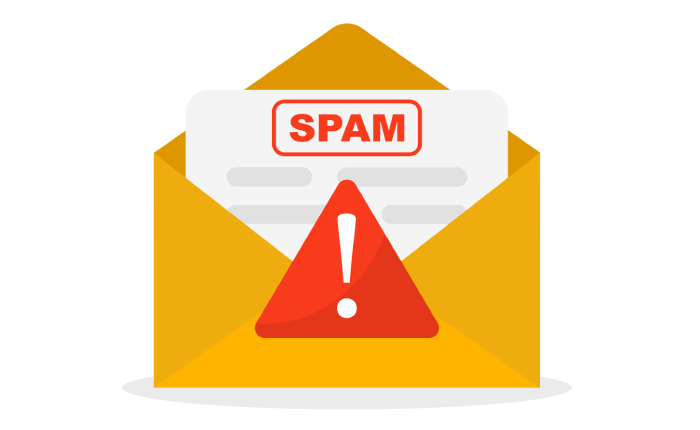An effective email client may help you manage your business by allowing you to skim through many emails efficiently and provide a robust email security posture alongside. By organizing emails and integrating applications for better functioning, an email client with great features may minimize the time spent composing, sending, receiving, and optimizing your email needs and enhance workplace productivity.
In 2022, when over 333.2 billion emails are sent every day, an effective email client can be a boon for your enterprise. But choosing an email client that ticks all the boxes for your needs is a matter of the right choices.
Webmail vs. Email Client: Which One to Choose for Your Business
The first step is choosing a webmail or an email client for your business needs. Here’s an explanation of what these are and which would suit your needs best.
Webmail is a web browser-based interface for accessing and managing your email accounts such as Gmail, Yahoo, Hotmail, and more. On the other hand, an email client is a desktop or mobile application for managing your mailbox. You access webmail using an Internet connection or a browser, but an email client can be offline.
Webmail has various advantages such as:
- No additional software is required.
- You can simply access your mailbox using a web browser and an Internet connection.
- Mostly, a webmail client backs data automatically to the email server or provider, eliminating the need for manual backups.
- A lot of webmail clients also automatically scan your emails for spam or phishing content and email attachments for viruses.
Webmail can undoubtedly prove to be a good email solution if you are looking for a simple solution for online mail management using a browser. However, an email client provides better functionality in many regards by providing:
- Offline Emails: An email client has an advantage over webmail as it allows you to read, write, and respond to emails without an active Internet connection and provides MX backup in case of failures.
- Personalization: An email client also beats webmail as it provides many features for a personalized mail inbox via its software.
- Local Backups: You can use an email client to securely and manually backup, archive, or delete emails on your device as per your satisfaction, without worrying about your online storage reaching its limit.
- Extensions: An email client also allows the integration of additional applications and extensions for better email productivity.
Furthermore, email clients provide management of multiple accounts, have support for additional tools, and offer personalization options for a well-tailored email experience.
Understanding Email Client Protocols
While choosing an email client, your organization also needs to focus on email protocols for storing and sending emails. An email protocol directly impacts the email client’s way of functioning. The three most popular and widely used email client protocols are:
- POP: POP stands for Post Office Protocols. Email clients using POP retrieve emails from the server and store them on your device. All changes are synchronized, so a change or addition of a folder on your server is reflected in your system as well.
- IMAP: An email client using the Internet Message Access Protocol saves your emails on the servers. Saved emails on the service provider’s servers mean your data is kept at an external site, and you can use different systems to access your emails.
- SMTP: The Simple Mail Transfer Protocol, as the name suggests, is the protocol for sending, receiving, or forwarding emails.
Understanding the different protocols is critical when choosing an email client. It resonates with your business requirements of selecting an email client that stores emails locally on your device or servers for the versatility of access and storage options.
For example, POP allows offline access for the email and reduces the server space used by your email account. And an outbound SMTP with DKIM (DomainKeys Identified Mail) signing and SPF (Sender Policy Framework) validation can ensure your business’s improved email deliverability and reputation.
Things to Look for While Selecting a Suitable Email Client for Your Business
An excellent email client can improve your business by providing:
- Management Features: Efficient email management is the primary goal for any email client, so a good email client offers management features such as a filter for cleaning the mailbox, email archiving, multiple account support, online collaboration with notes and to-do lists, advanced searches for finding specific email content, email labeling, etc.
- Customization: Customization via themes, email layouts, inbox, notifications, etc., adds to an easy and personalized experience when using your email client. Always look for a customization solution that each employee can utilize for the best experience when using email.
- Economical Subscriptions: Choosing an email client is also vital as tenant migration can be a time and cost-consuming task. Always look for an affordable email client that addresses your business needs. Furthermore, an email client providing email security as a service, bundled services, or monthly or yearly subscriptions provides sound and economical offerings.
- Enhanced Productivity: An email client should boost productivity by offering utilities such as snoozes, readers for emails, segmentation, and more for easing email handling.
- App Integration: Integration of social media applications, writing apps, time management, event calendars, and video conferencing are crucial for a business which is why an email client should provide integration options.
- Reliability: Managing emails on the go is necessary for a business as over 60% of professionals prefer emails for business communication. An email client should work without the Internet to ensure that your clients are always reachable. Furthermore, MX backup can ensure that emails are not lost in case of failures storing incoming mails.
- Security: An excellent email client also provides email security by configuration scanning tools, anti-malware, PGP (Pretty Good Privacy) encryption, and spam filters. Email security as a service offering data protection, with image and content control and scanning can distinguish an email client.
- Latest Updates: Providing the latest email security strategies, new features, improvement of existing ones, and better customizations are features that a good email client should ensure for a business.
Final Words
With a wide range of email clients available, individuals may feel overwhelmed when choosing the best email client for business needs. The ideal email solution addresses the needs of businesses of all sizes with its vast array of constantly updated and improved features for delivering a seamless and personalized experience, ease of use, and reduced workload.


